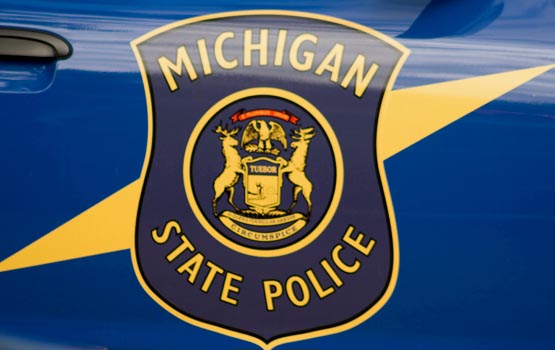The Michigan House joined the State Senate in acting on the Unlock Michigan initiative Wednesday. The legislature has the ability to take up any issue set to go before voters through the petition process, and it does not require the governor’s signature.
The approval formally rescinds the 1945 Emergency Powers of Governor Act used by Gretchen Whitmer last spring to institute statewide economic lockdowns in response to COVID-19. The final vote in the house was 60-48. Four Democratic representatives joined their Republican colleagues in the vote, including Sara Cambensy of Marquette.
Representative Greg Markkanen hailed the move as a protection against executive overreach. He says a law passed in the 1970’s offers the governor many of the same powers, but it would require more cooperation with the legislature to put them into place.
The 1945 law was broadly written, but was generally understood to be used for riots like those in Detroit in 1943 and 1967. When then-Governor George Romney tried to expand the authorization to curb fishing in Lake St. Clair, the legislature came up with a new statute in 1976.
The Michigan Supreme Court ruled that the law was unconstitutional last year. Signatures were gathered for the petitions in 2020, and it took months for election officials, along with the State Board of Canvassers, to certify them as valid.
Cambensy says the approval is not the end of the issue, but only the beginning. Both of their press releases regarding the law can be found below.
***********************
Today, Rep. Sara Cambensy (D-Marquette) voted to approve a voter initiative that would eliminate the 1945 Emergency Powers of the Governor Act, urging her legislative colleagues and the governor to work together in a bipartisan effort to establish a new law. The Michigan Supreme Court ruled the 1945 law was unconstitutional on Oct. 2, 2020. Earlier this month, the Michigan Board of Canvassers were told again by the Michigan Supreme Court to certify the “Unlock Michigan” voter initiative petitions, which had over 500,000 valid signatures to overturn the outdated law.
Under the Michigan Constitution, the Legislature can pull voter initiatives off the ballot and vote to approve or deny them. If they do, the governor cannot veto the initiative, and it passed with a simple majority vote. The initiative was passed today with a 60-48 vote total. Four Democrats joined Republicans in passing the initiative.
“Ever since the beginning of the pandemic, I have urged my fellow lawmakers to work toward a meaningful replacement of the 1945 Emergency Powers of the Governor Act — a bipartisan replacement that would allow the legislative and executive branch to work together during a pandemic or other crisis,” Cambensy said. “We need a bipartisan plan that recognizes and respects the regional differences that exist in our vast state, all while keeping every Michigander equally safe.”
Cambensy feels all sides can work together on a solution but spoke on the House Floor about the importance of building consensus on how to go forward.
“What we’re doing now is wasting precious time,” Cambensy said. “We need to respect the Michigan Supreme Court’s ruling. I challenge my colleagues to work together — with the governor and across the aisle — to create legislation that clearly defines how we will deal with pandemics going forward. Our constituents deserve it.”
****************
In what he underscored as a win for individual liberties and the ability for people to have their voices heard through representation, state Rep. Greg Markkanen today joined Michigan House colleagues to formally approve a petition repealing an unconstitutional state law.
Gov. Gretchen Whitmer used the Emergency Powers of Governor Act of 1945 to declare an extended state of emergency during the COVID-19 pandemic. This move included issuing wide-ranging directives without the approval of the Legislature.
In turn, the directives had wide-ranging impacts on people throughout the state – while negating the ability for them to be represented through their elected officials and have their voices heard.
“Gov. Whitmer ruling unilaterally had a profound impact on the functionality of our state as we went through COVID-19,” said Markkanen, of Hancock. “It also had a profound impact on the functionality of basic representation in state government. People were unable to have their voices heard – as legislators serve as the voice of the people.
“Because of this approach by the governor, numerous concerns people had – whether it was unfulfilled unemployment claims, families worried their children were falling behind by not being in a classroom or small business owners wondering what they had to do to resume their livelihoods safely and sensibly – fell on deaf ears. The governor was the one making the decisions alone.”
In October, the Michigan Supreme Court ruled that Whitmer violated her constitutional authority by continuing to issue orders without the approval of the Legislature. A citizens’ initiative throughout the summer and fall of 2020 sought to repeal the law and collected over 460,000 valid signatures from Michigan voters.
Formal approval from the Legislature makes the measure official. The Michigan Senate already approved the measure last week and it now becomes law without the need for the governor’s signature – as prescribed by the Michigan Constitution. There is no ability for Whitmer to veto the proposal following passage in both chambers.
“Today, the House showed very clearly that it is the voice of the people – and ensured that people will be able to have their voices heard in the future while being free of consolidated, unilateral power from the executive branch,” Markkanen said.
 Keweenaw Report Your Source for Local News and Sports
Keweenaw Report Your Source for Local News and Sports





